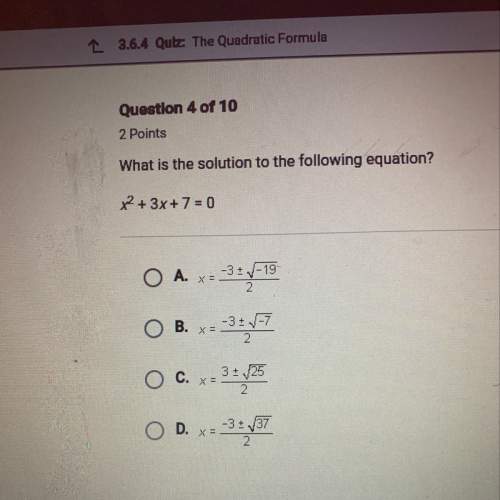
Mathematics, 05.05.2020 06:11 jennsou
Determine if the statement is true or false, and justify your answer. You may assume that A and B are n × n matrices. If A and B are diagonal matrices, then so is A − B. True. If i ≠ j, then Aij = Bij = 0, so (A − B)ij = 0, and A − B is diagonal. True. If i = j, then Aij = Bij = 0, so (A − B)ij = 0, and A − B is diagonal. False. If i = j, then (A − B)ij = Aij − Bij may not be zero, so A − B is not necessarily diagonal. False. If i ≠ j, then (A − B)ij = Aij − Bij may not be zero, so A − B is not necessarily diagonal. False. If i ≠ j, then Aij = −Bij, so (A − B)ij = 2Aij, and A − B is not diagonal.

Answers: 1


Other questions on the subject: Mathematics


Mathematics, 21.06.2019 21:00, Kekkdkskdkdk
Out of $20$ creepy-crawly creatures in a room, $80\%$ are flies and $20\%$ are spiders. if $s\%$ of the total legs belong to spiders, what is $s$?
Answers: 2

Mathematics, 21.06.2019 22:00, lraesingleton
What is the solution to the division problem below x3+x2-11x+4/x+4
Answers: 2

Mathematics, 21.06.2019 22:00, pandyjunk3981
Let event a = you roll an even number on the first cube. let event b = you roll a 6 on the second cube. are the events independent or dependent? why?
Answers: 1
You know the right answer?
Determine if the statement is true or false, and justify your answer. You may assume that A and B ar...
Questions in other subjects:

Mathematics, 01.03.2020 17:55


Health, 01.03.2020 17:57



Mathematics, 01.03.2020 17:58



Computers and Technology, 01.03.2020 18:00

Biology, 01.03.2020 18:00




